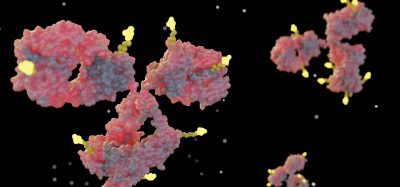UCLA scientists discover therapy that can suppress ulcerative colitis
Posted: 24 July 2015 | Victoria White
UCLA scientists have discovered a microRNA-214 inhibitor that has the ability to suppress the development of ulcerative colitis…


UCLA scientists have discovered a ground-breaking experimental therapy that has the ability to suppress the development of ulcerative colitis.
The treatment utilises a chemical inhibitor able to block an RNA molecule (microRNA-214) involved in the transmission of genetic information.
High levels of microRNA-214 are typically seen in ulcerative colitis patients, who have an increased risk of developing colon cancer. It is still unclear why colitis patients also develop colon cancer.
In a two-year study, UCLA Jonsson Comprehensive Cancer Centre member Dr Dimitrios Iliopoulos and his colleague Dr Christos Polytarchou, UCLA assistant professor of digestive diseases, examined 401 colon tissue samples from patients in the United States and Europe with ulcerative colitis, Crohn’s disease, irritable bowel syndrome, sporadic colorectal cancer, and colitis-associated colon cancer and compared them to specimens from people without these disorders or diseases.
The research team developed a systems approach that could expedite the drug discovery process by utilising sophisticated computer programs and high-tech robotics that combines molecular and clinical information to identify the most important genes to create new drugs. The integration of this complex data is what led them to discover a new microRNA-214 chemical inhibitor to treat ulcerative colitis and colon cancer.
The microRNA-214 inhibitor was highly effective at suppressing ulcerative colitis in mice
“The first steps of the drug discovery process usually take five to six years and by using our novel approach we expedited the drug discovery process only in two years,” said Iliopoulos, an associate professor of digestive diseases.
Previous studies have mentioned findings related to inflammatory responses in both sporadic and colitis-associated colon cancers, but it was unclear until now whether the inflammatory signals regulated the same signalling pathways.
“We evaluated this drug in mice with ulcerative colitis and colon tumours and found that in both cases it was highly effective to suppress these diseases,” said Iliopoulos.
Iliopoulos will continue testing the microRNA-214 inhibitor and will apply for an investigational new drug application with the Food and Drug Administration. He hopes to eventually begin Phase I clinical trials for patients with ulcerative colitis next year.
The study is published in Gastroenterology.
Related topics
Drug Discovery, Gene Testing, Gene Therapy, RNAs
Related organisations
UCLA








